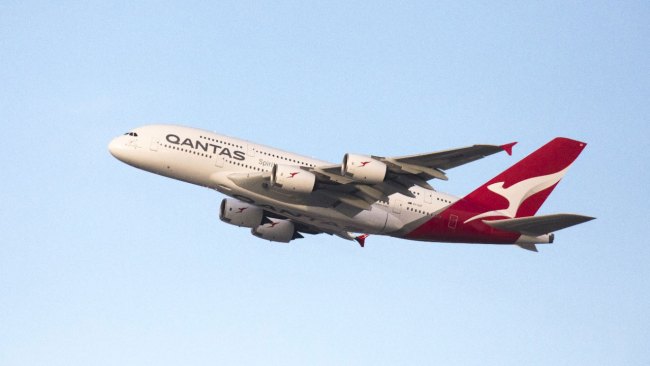Why are people spraying hypochlorous acid on their skin? We asked a doctor
We got the 411
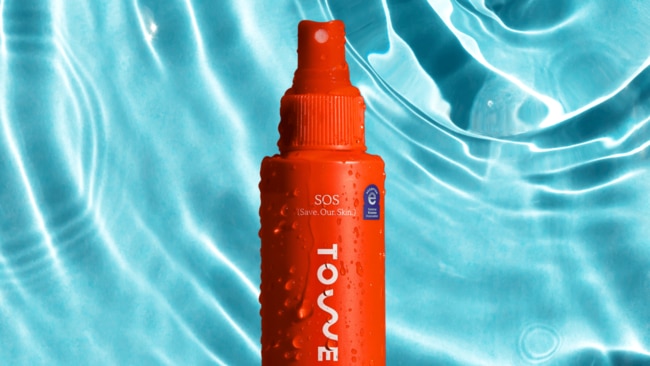
Lifestyle
Don't miss out on the headlines from Lifestyle. Followed categories will be added to My News.
The controversial ingredient, which is said to be 100 times more powerful than bleach at killing bacteria, is now being hailed as a skincare superstar. We spoke with a dermatologist about hypochlorous acid and how to use it safely.
We all do some funny things for our skin. Indulge in 10-step skincare routines, smear snail mucin all over our face for the promise of glowy skin, and run a tight ship when it comes to our masking routines (check, check and check).
But there’s a new cool kid on the block that’s taking the skincare world by storm – and it’s quite controversial.
It’s called hypochlorous acid. Known traditionally as a killer of bacteria and viruses, the ingredient is a compound often used for more sterile purposes, like wound care and disinfectant cleaning and is billed to be 100 times more powerful than bleach when it comes to fighting bacteria. But now, people are spraying it on their skin as a means to stave off acne.
Here, we spoke to a doctor about what hypochlorous acid is, why people are using it in their skincare routines, and how to use it safely (because yes, you can use it safely).
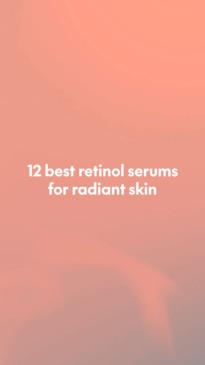
First, what the heck is hypochlorous acid?
“Hypochlorous Acid (HOCl) is a weak acid and antimicrobial molecule naturally produced by white blood cells (immune cells) in the body,” GP and cosmetic doctor Dr Prasanthi tells Body+Soul. “It is part of the first line of chemical defence in the body against foreign pathogens.”
While we’re not science experts, we do know that this ingredient is wildly effective.
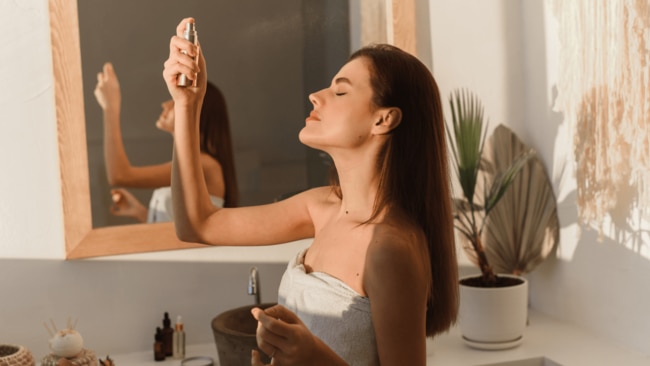
What are the benefits of hypochlorous acid?
There are a bunch of reasons why people are flocking to this mysterious, yet effective ingredient – especially if they suffer from acne.
Dr Prasanthi tells us that the first big reason is that it’s because it’s an anti-bacterial compound and in turn, “preserves and promotes healthy important bacteria on the skin for a balanced healthy skin microbiome.”
Studies have also shown that because hypochlorous acid does not increase cell turnover rate (say, like a retinoid), your skin is less likely to purge itself, making it an ideal candidate for those who suffer with acne.
“This doesn’t mean there is not a role for tried and tested evidence-based actives like benzoyl peroxide and retinoids, rather a role for hypochlorous acid that can be a more gentle addition to the tool kit for acne,” Dr Prasanthi explains.
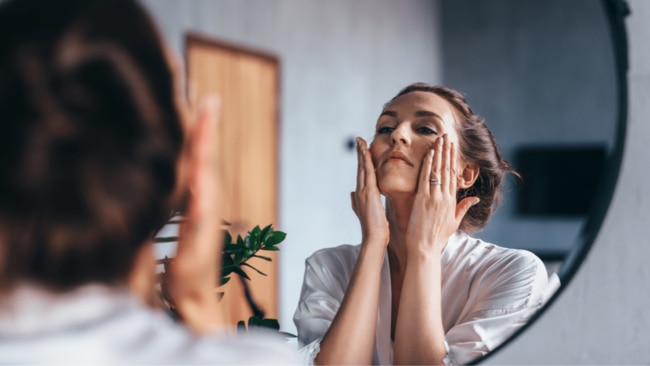
Hypochlorous acid is also a powerful anti-inflammatory compound. “This is particularly helpful in inflammatory skin conditions like acne as well as eczema and acute wounds,” Dr Prasanthi says, adding that it can help prevent breakouts and treat after-effects. “Through reducing inflammation in acne you will have a reduction in possible complications after acne including post-inflammatory hyperpigmentation or erythema (brown/black or red spots), scarring, as well as symptoms like tenderness and redness.”
Of course, hypochlorous acid is also great for wound healing – which is one of its more popular uses – and antimicrobial, meaning it's able to destroy pathogenic viruses and fungi.
Hypochlorous acid also reduces itching, pain and stinging through “reducing inflammatory interleukins, histamine that can trigger itch”, Dr Prasanthi says.
Tower 28 SOS Daily Rescue Facial Spray, $20 from mecca.com
Additionally, It can help eliminate odours, reduce redness, and assist with barrier repair thanks to increased hydration in the skin.
With so many benefits, Dr Prasanthi says that the use of hypochlorous acid can be helpful in a bunch of scenarios.
These include:
- Acne
- Eczema
- Seborrheic dermatitis
- Rosacea
- Sunburns
- Cuts/scrapes/scars
- Tattoo aftercare
- Post-piercing aftercare
- Inflamed cuticles
- Bug bites/stings
- Post-clinical procedures (peels, lasers, microneedling etc)
- Nappy rash
...and more.
Damn, talk about a multitasker!
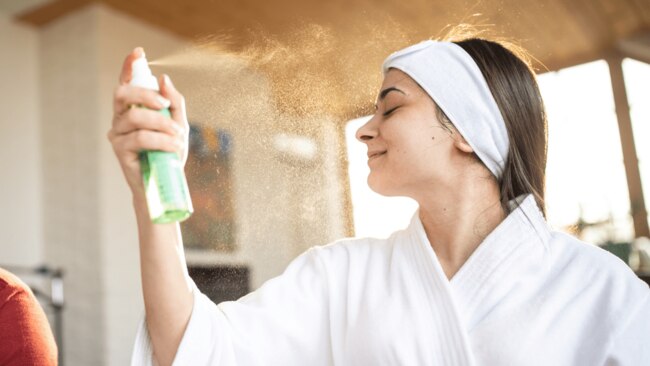
How can I use hypochlorous acid?
Dr Prasanthi explains that despite a fear mongering campaign that compares the ingredient to household cleaning products like bleach, when hypochlorous acid is used correctly and with the appropriate dilution, it’s very safe to use in our skincare routines.
“The recommended concentration of HOCl typically falls within the low range of 0.005% (50 ppm) to 0.02% (200 ppm),” Dr Prasanthi explains. “This concentration range has proven effective in delivering desired benefits, including antimicrobial, anti-inflammatory, and wound-healing properties.”
However, she specifies that it’s important to stick to the correct dilution, otherwise there might be some pretty bad consequences. “This is a case of more does not = increased benefits and in fact, inversely, very high concentrations can lead to skin irritation and even burns.”
For full safety and skincare benefits, Dr Prasanthi recommends sticking to what’s on the shelves. “Most hypochlorous acid skincare products exist in a spray or mist dispensing mechanism.”
To use properly, apply it to freshly cleansed skin as your first product. Before proceeding to the rest of your skincare routine, make sure you wait for it to dry down. Then to finish off, seal everything in with a barrier supporting moisturiser.
“The hypochlorous acid used in skin care products is as aforementioned highly diluted,” Dr Prasanthi reiterates. “Thus the concentration of the ingredient being applied to the face and body is much much lower than what we see in household cleaning products and disinfectants.”
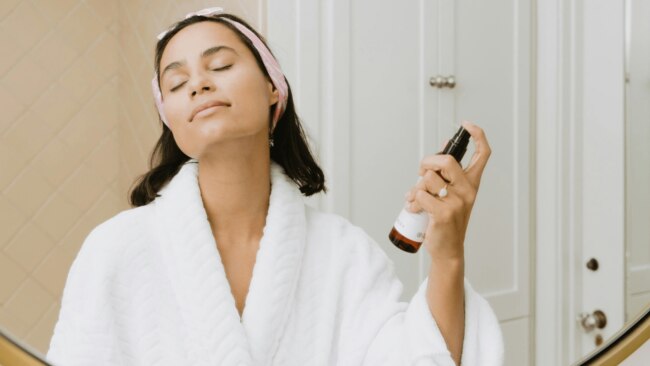
Are there alternatives to hypochlorous acid?
Still not fully convinced? If you’re trying to treat acne (especially workout-induced breakouts), Dr Prasanthi says there are plenty of other alternatives if you’re not sold on the hypochlorous acid train.
Other well-studied ingredients include traditional actives like salicylic acid (which is anti-inflammatory and oil-controlling), and benzoyl peroxide washes (like Benzac) which help unclog pores, kill acne-causing bacteria and reduce inflammation.
For something a little less drying, Dr Prasanthi recommends niacinamide for its barrier-supporting and anti-inflammatory properties, as well as one old faithful: “Never underestimate the importance of a good body moisturiser to strengthen the skin barrier and reduce the entry of pathogenic bacteria after a wash (looking for things like ceramides, glycerin, cholesterol, fatty acids).”
So are you going to take the plunge into the hypochlorous acid world? We know we might.
More Coverage
Originally published as Why are people spraying hypochlorous acid on their skin? We asked a doctor



